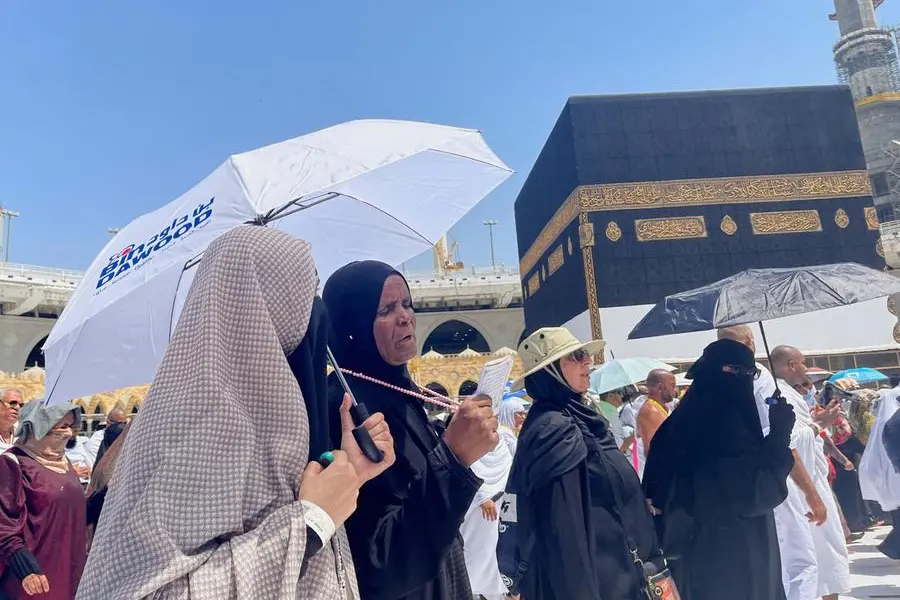PHOTO
No Covid-19 positive cases have been detected among Bahraini pilgrims reaching Mecca, according to officials.
All 2,094 pilgrims and 105 administrators from Bahrain arrived in the Saudi holy city yesterday as the Haj season, which began on Friday, marked the first post-pandemic pilgrimage season after two years of major disruptions caused by the coronavirus pandemic.
“There is continuous co-ordination in order to ensure the safety of pilgrims throughout the season and this begins before the pilgrims travel from Bahrain until they reach the holy sites,” Bahraini Haj Mission public relations and media committee head Saleh Yousif told the GDN.
“A reverse transcript polymerase chain reaction (RT-PCR) is conducted for all pilgrims before travelling and if any positive cases are detected they will be replaced.
“The mission and campaigns are keen to provide all the necessary health supplies – including rapid tests and masks – on a daily basis in joint co-ordination.
“No positive cases have yet been identified among the Bahraini pilgrims; in case anyone is found infected, there are procedures and protocols in place to internally isolate them.
“If anyone requires to be admitted to hospital, they are transferred to Al Noor Saudi Hospital and arrangements have been made with the Saudi authorities to let these positive cases complete their pilgrimage.”
Mr Yousif added that the mission’s medical committee is communicating with all Bahraini campaigns to ensure pilgrims are aware of precautionary and preventive measures as well as safety protocols.
The GDN previously reported that the Saudi Haj and Umrah Ministry announced that all pilgrims must submit a negative RT-PCR test report taken no more than 48 hours before arrival.
From February 9, pilgrims must show proof of vaccination using the Tawakkalna (Saudi Covid-19 app) to enter the Grand Mosque in Mecca and the Prophet’s Mosque in Madina.
They should also book an Umrah or prayer slot using the app to be able to perform prayers or worship due to strict health and safety protocols.
Meanwhile, Health Mates Society health educator Zahra Al Muhafdha said food safety was critical during Haj to avoid diseases and illnesses that may hinder the completion of the rituals.
“Members of the Haj campaigns must ensure the safety of the food provided to the pilgrims by ensuring that it is clean, kept at appropriate temperatures, washed using clean water and cooked well in addition to keeping raw and cooked food separated,” she said.
“Personal hygiene of the cook is also critical in addition to clean surfaces used for cooking and ensuring all used tools are washed to prevent cross-contamination.”
She urged pilgrims to ensure the safety of their food prior to eating it by assessing changes in colour, taste, smell or texture as well as avoid frequent heating of meals while also inspecting the general cleanliness of restaurants.
She highlighted that food poisoning symptoms – which include diarrhoea, nausea, vomiting, fatigue, abdominal pain which may be accompanied with a high fever – can last from one day to a week which may hinder the pilgrim’s ability to perform the Haj rituals.
Saudi Arabia has enabled foreign travellers to perform Haj this year as only a few thousand Saudi citizens and residents attended the annual pilgrimage in the last two years due to Covid-19 travel restrictions.
reem@gdnmedia.bh
© Copyright 2020 www.gdnonline.com
Copyright 2022 Al Hilal Publishing and Marketing Group Provided by SyndiGate Media Inc. (Syndigate.info).





















